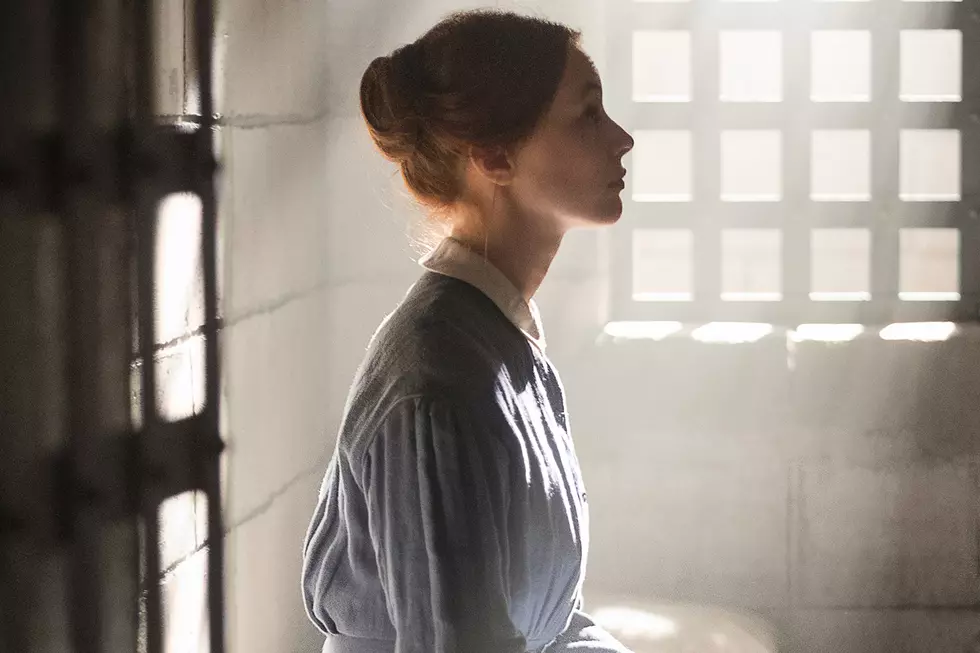
‘Stories We Tell’ Review
Since before the Neolithic revolution of 10,000 BC there have been stories. (I know this from reading in-depth about the Lascaux cave paintings and also from seeing 'The Croods.') While there was, is and always will be fiction, much of artistic expression has been used as a means to record what happened to us. 'Og Nearly Got Eaten by a Mastodon Today' – that would have been a big hit in the stone age.
Part of this process can be a search for an undeniable truth and part of it is self-discovery. That's at the heart of 'Stories We Tell,' a remarkable first-person documentary actor/director Sarah Polley made after she dug into some secrets about her own unorthodox upbringing.
A large percentage of the film's value comes from it being juicy, so I want to avoid getting too specific of its revelations. Indeed, the film could have been laid out with the secrets up front, as in a Wikipedia entry, but 'Stories We Tell' is a story, even if the people telling it already know the ending. While Polley was driven, initially, in a hunt for the facts, this film is a study on how facts have repercussions and are interpreted in different ways by different people. Also, a search for the best way to deliver those facts.
This meta-discussion bubbles all the way up to the surface, in that the nature of this unusual documentary becomes part of the story.
Throughout 'Stories We Tell' Polley talks with people around the core mystery of her life before diving in. To put it in public speaking terms, “you tell 'em what you're gonna' tell 'em, you tell 'em, then you tell 'em what you told 'em.” The movie has a somewhat aggravating, elongated opening of people unsure about how or why they should tell this story. It is endearing (to a point) because these are all just normal people – the siblings, friends and relations (no spoilers!) of Sarah Polley's who all, eventually, work their way into the fabric of her life.
A joy of the film, however, is watching Polley's elderly father in a recording studio reading the text of a story he wrote in the wake of the big discovery at the heart of the film. His theatrical basso profundo intercut with his petite daughter giving directing notes from the booth is fascinating and strangely emotional, even if completely divorced from the narrative at play.
However, despite my admiration for Polley and the unusual form this first-person inquiry took, I must confess that there were a few (more than two, less than five) moments where, if I were alone, I may have shouted something at the screen like “okay, enough, who cares!?!”
It's strange, in that Polley and her subjects joke that this personal narrative may not be too interesting to those outside their own circle. They're right. Even though this is a high-minded journey to uncover an ineffable truth, there are moments when it resembles the times you spent bored in your kitchen while your mom and Aunts relentlessly gossiped for hours around the table.
I may be being harsh, I suppose, because an interesting turn will snap you back just when you want to shrug this picture off. It can't just be because Sarah Polley is a “celebrity.” She's a Canadian celebrity in every great sense of the word – clever, down to earth, unmarred by tabloid scandal. She comes off as the total opposite of the spotlight-craving Kardashian-types who seem to live solely to expose their dirty laundry. This is yet another of the curiosities that make 'Stories We Tell' so unique, and so far removed from the bottom feeding confessionals it would resemble if dashed off in a dumbed-down, reductive synopsis.
'Stories We Tell' opens in select theaters on May 17.
Jordan Hoffman is a writer, critic and lapsed filmmaker living in New York City. His work can also be seen on Film.com, Badass Digest and StarTrek.com.
More From ScreenCrush









